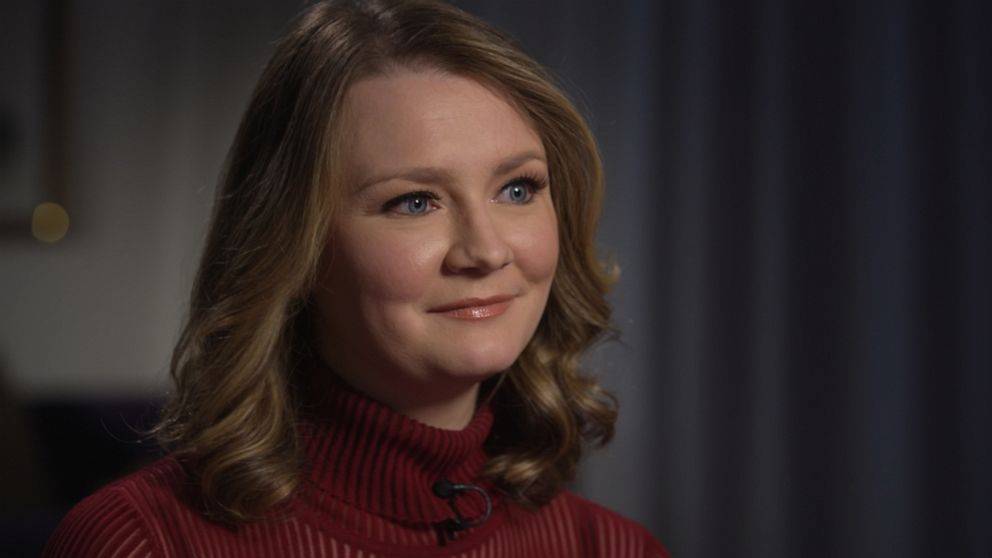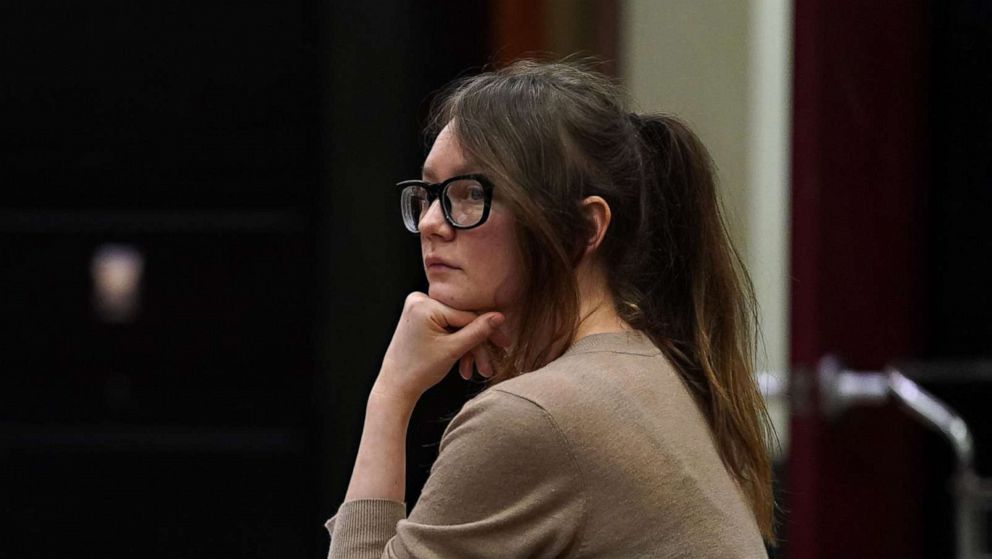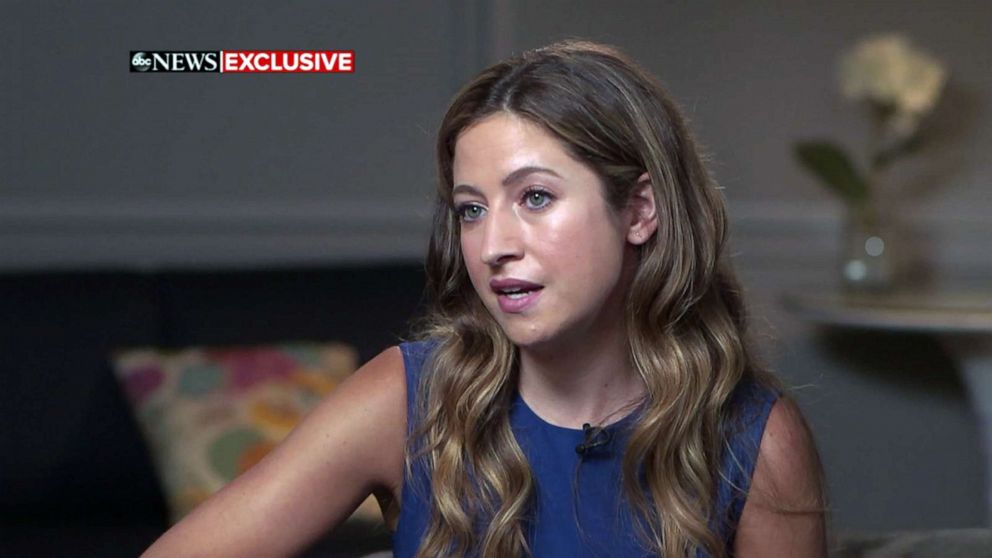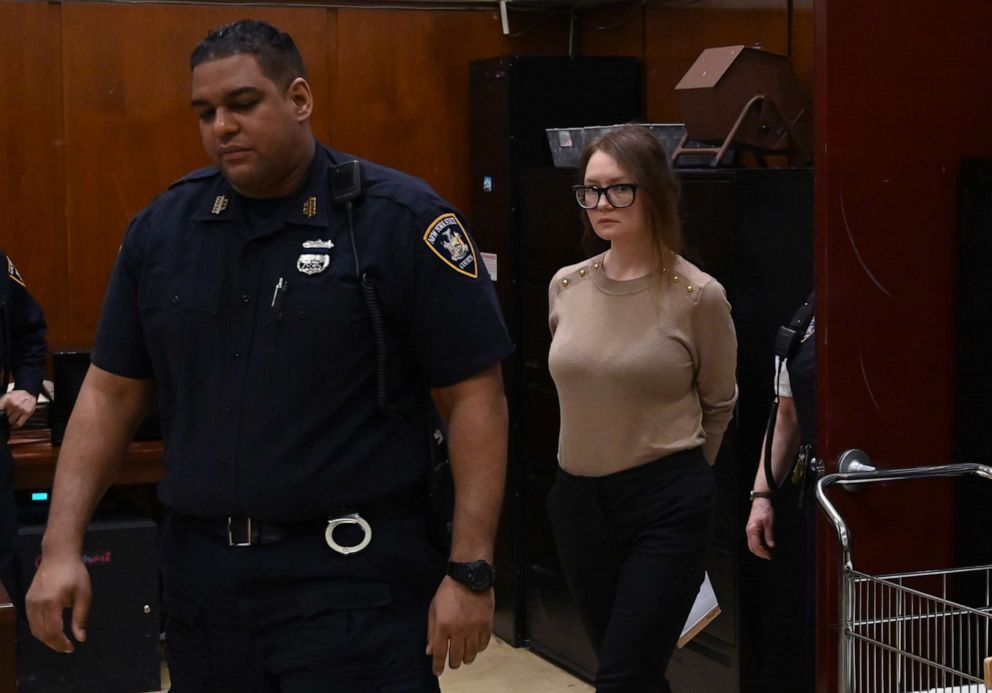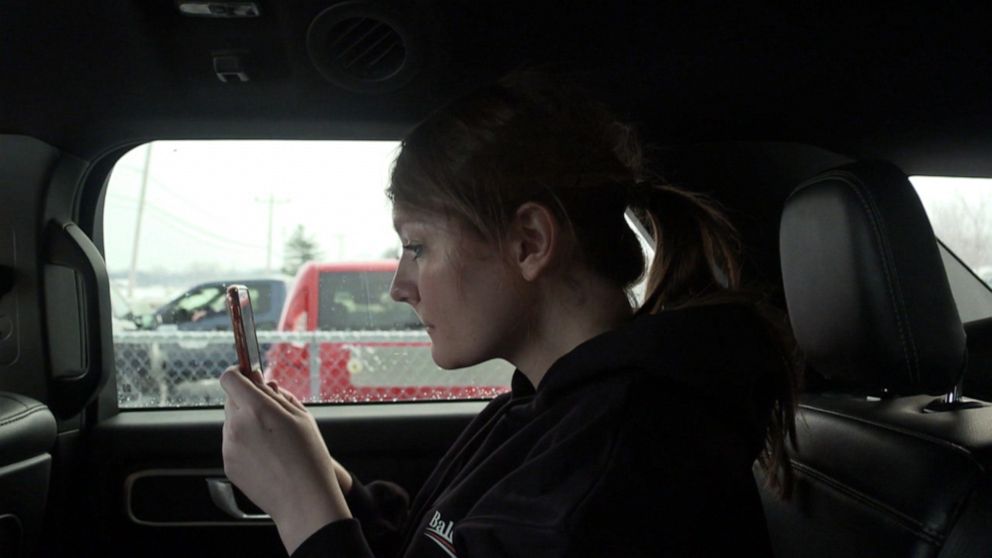'Fake heiress' Anna Sorokin details life after prison in ABC News interview
Watch the full story on "20/20," now streaming on Hulu.

NEW YORK -- The Anna Sorokin story is a tale of a young woman who decided to be someone else and became that person - but at an enormous cost.
Dubbed names like the "fake heiress," the "Soho scammer," the "Soho grifter," Sorokin assumed the name Anna "Delvey" and pretended to be a German heiress with a $67 million trust fund, according to prosecutors.
Prosecutors argued Sorokin used that fake identity to swindle Manhattan's elite, gaining access to exclusive parties, nightclubs and hotels until her deception came to light. She defrauded hotels, restaurants, a private jet operator and banks out of around $275,000 during a 10-month spree, prosecutors alleged.
So who is the real Sorokin?
"That's a loaded question," Sorokin told ABC News senior national affairs correspondent Deborah Roberts. "I would like to show the world that I'm not this dumb, greedy person that they portrayed me to be."
The 30-year-old was convicted in May 2019 on eight counts, including grand larceny, attempted grand larceny and theft of services. She was sentenced to four to 12 years in prison, fined $24,000 and ordered to pay nearly $200,000 in restitution.
She served just under four years and was released on good behavior in February.
In reality, Sorokin, who is Russian-born but lived in Germany, comes from a middle class family. She arrived in New York City in 2013 in her 20s. Eventually Sorokin convinced people, from friends to financial institutions, that she was a wealthy socialite and a jetsetter, picking up tabs and often paying in cash -- living a glamorous and expensive life which she seemed to flaunt on Instagram and Twitter.
As for the fake name "Delvey," Sorokin said, "I just came up with it."
Sorokin's plan when she moved to Manhattan was to set up a high-end members-only arts club, according to her former defense attorney Todd Spodek.
"Arts, fashion, entertainment, music, restaurants, everything in one place," he said. "The name of this was the Anna Delvey Foundation, the ADF."
But Sorokin said she never claimed to be an heiress and never claimed to come from money. She said she "always knew" she couldn't afford a lavish jet-setting lifestyle, and knew she couldn't pay back money she said she borrowed from others, but said she was "trying to fix that" before her 2017 arrest.
Spodek, her defense attorney at trial argued that Sorokin did nothing wrong, that she simply exploited a system, easily seduced by glitz and glamour, and told little white lies along the way.
"Anna had every intention of doing things the right way, but she couldn't open those doors without doing something a little bit grey to open the door," he said. "Everyone creates the version of themselves that they want the world to see... Everyone lies when it's convenient to them... and Anna did the same thing. She couldn't be 100% honest because no one would listen to her."
"I never had a fraudulent intent," Sorokin said. "And I guess that's what should really count."
Her former friend Rachel DeLoache Williams said she was among the many people Sorokin betrayed. Williams recounted her experience in an interview with ABC News as well as in her new book, "My Friend Anna: The True Story of a Fake Heiress."
Williams said she met Sorokin in a Manhattan nightclub. At the time, Williams was a 28-year-old photo editor for Vanity Fair. She said her first impression of Sorokin was that she was "slightly offbeat."
"People have asked [me], were there red flags?" Williams said."I never questioned that she was who she said she was. I never had reason to and I wouldn't have thought that way."
Williams said that Sorokin often picked up the tab, treating her to fancy dinners, $300 private fitness sessions and infrared sauna treatments.
Then, in spring 2017, Williams said Sorokin offered her an all-expenses-paid trip to Morocco. On the trip together, however, Sorokin's credit cards mysteriously stopped working.
"I guess they gave me [the] impression that they pre-authorized my card or something like that," Sorokin said.
Fearful of being stranded in a foreign country, Williams said she agreed to offer her credit cards -- her personal and company corporate card -- when asked as a temporary backup, even though she could not afford it.
"[The hotel] said to me, 'Do you have a credit card?' So I look at Anna and she's like, 'Can we just use it for now?'" Williams said.
After she left Morocco and landed back in the U.S., Williams said she learned the total amount was $62,000.
"She owed me more money than I made in a year," she said.
Sorokin told ABC News she intended to pay Williams back though she knew she didn't yet have the money. But as time went on, Williams was panicking.
"I am late with my rent," Williams said. "I'm late with my credit card payments."
Unrelated to the Morocco trip, Sorokin was arrested in July 2017 for theft of services when she couldn't pay her high-end Manhattan restaurant and hotel bills. Following her arraignment in court, Sorokin took off for California.
Meanwhile, Williams, realizing she had been duped, went to the police and the Manhattan District Attorney's Office. After Sorokin missed a court date, Williams ended up aiding investigators in a sting operation that eventually led to Sorokin's second arrest in October 2017 in Malibu, California.
When she was arrested, Sorokin was extradited back to New York City and taken to Rikers Island Jail, where she was held for 19 months.
According to her former defense attorney, Sorokin was offered a plea deal of a three to nine-year prison sentence to resolve all criminal liability, but turned it down.
"I wanted to go to trial," she said. "I felt like it was the only way to tell my story."
Williams testified against Sorokin at her 2019 trial, and said it was the most traumatic moment of her life.
"I understand the word trauma is relative," Williams said. "To have someone that I had put so much goodwill into turn out to just be like a liar and who had willfully hurt me, was very painful."
Though Sorokin was found guilty on eight counts, she was acquitted on two, including the most serious charge against her which was attempting to steal more than $1 million from a bank. She was also acquitted of theft relating to Williams' $62,000 credit card bill, which Williams said was "extremely devastating."
Following an investigation into the Moroccan resort charges, Williams' credit card company forgave a bulk of her debt, though she was still required to pay back some of the expenses incurred.
When Sorokin heard the verdict, she said she decided to "just deal with the consequences."
"What, am I supposed to collapse and cry?" she said. "They're, whatever, 50, 100 cameras in my face? So I don't know. It's just, like-- it's really hard for me to, like, cry on demand."
Sorokin sold the rights to her story to Netflix and Shonda Rimes, but because New York state law doesn't allow criminals to profit from their crimes, the money from the deal had to first be used to pay her victims back.
After her February prison release, Sorokin's Instagram was back up and running, featuring photos of her drinking champagne from a claw-footed tub and seeming to be living the good life.
Sorokin is now back in jail, currently in U.S. Immigration and Customs Enforcement custody and could face deportation. But she is determined to stay in the U.S.
So what's next for Anna Sorokin?
"I guess it remains to be seen," she said. "I'm just trying to rewrite my story."
ABC News' Catherine Thorbecke and Matt Knox contributed to this report


